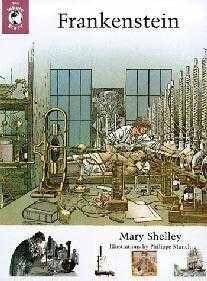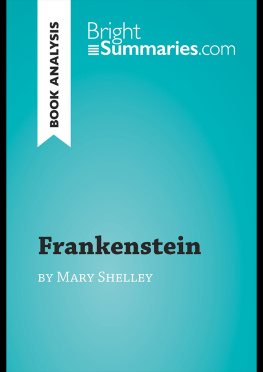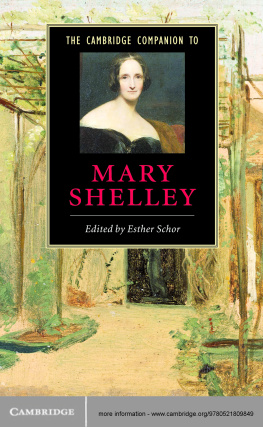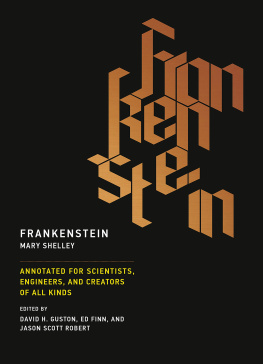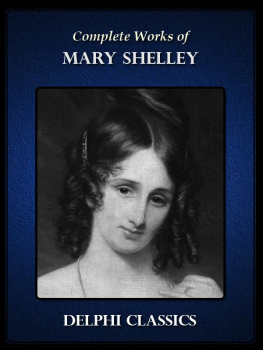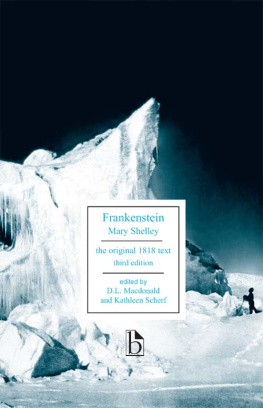

 SHELLEY UNBOUND
SHELLEY UNBOUND

Discovering Frankensteins True Creator

BY SCOTT DOUGLAS de HART
SHELLEY UNBOUND
DISCOVERING FRANKENSTEINS TRUE CREATOR

(C) 2013 SCOTT DOUGLAS de HART
FERAL HOUSE
1240 W. SIMS WAY
SUITE 124
PORT TOWNSEND WA 98368
FERALHOUSE.COM
COVER DESIGN BY KAREN TOZZI
INTERIOR DESIGN BY DANA COLLINS
ISBN 978-1-9362-3964-1

 SHELLEY UNBOUND
SHELLEY UNBOUND

Discovering Frankensteins True Creator

BY SCOTT DOUGLAS de HART

FERAL HOUSE

FOREWORD
BY JOSEPH P. FARRELL
W hen my good friend of almost twenty years, Dr. Scott D. de Hart, and I were working on our previous book, Transhumanism: A Grimoire of Alchemical Altars and Agendas for the Transformation of Man, we very quickly recognized the crucial role that literature had played in disseminating the memes of the alchemical transformation of human consciousness, culture, and society. We zeroed in on Oscar Wilde, Dante Alighieri, and most importantly, Percy Bysshe Shelley as the alchemical authors par excellence, but it soon became clear that, of all these, it was Shelley who was the most crucial, and most complex.
Dr. de Hart quickly uncovered so much material that threw the whole academic farrago of Mary Shelleys authorship of that most alchemical of novels, Frankenstein, into a cocked hat, that over the course of several conversations we became convinced that the topic of its authorship, and the alchemical and even Illuminist themes within it, deserved a full treatment of its ownand that Scott should be the one to outline the burgeoning, and largely ignored, case against Mary Shelleys and for Percy Shelleys authorship of the famous novel, and more importantly to show how deeply steeped it is in the themes and memes of alchemical, esoteric, and Illuminati lore.
Bavaria, home and headquarters to the celebrated Bavarian Illuminati of Ingolstadt University Professor of Canon Law, Adam Weishaupt.
Shelley, as Dr. de Hart will detail in these pages, was enamored of the idea of a perfection of mankind, a possibility he saw would emerge once man was free of the intellectual constraints of Christianity, and able to develop the full potentials of science and all that it entailed for human life and societyand in this, the perfectabilism of Illuminism offered Shelley a manifesto in which to couch his novel.
Adam Weishaupt (17481830) was the conspirators conspirator, the founder of the notorious Bavarian Illuminati. As Dr. de Hart will detail in the main text, Percy Shelley was more than familiar with the machinations of this secret society, having read Abb Barruels history of Jacobinism during the French Revolution, in which the Illuminati played a prominent rolein Barruels opinionin unleashing the forces that would eventually overturn the French monarchy.
A nother contemporary of Abb Barruel, John Robison, wrote in his 1798 expos of the Illuminati, Proofs of a Conspiracy, that at its height, the order had initiated into its ranks all but two professors of the entire University of Ingolstadt. Given his thorough knowledge of matters pertaining to the Illuminati, we may reasonably assume that Percy Bysshe Shelley, in choosing to set Frankenstein at the notorious headquarters of the Illuminati, was more than familiar with the vast influence of the Order there.
But why would the Order appeal to Shelley in the first place?
As Dr. de Hart ably demonstrates in this book, the Orders views were not only similar in their revolutionary cultural goalsto weaken and eventually marginalize the influence of Christianity within Western cultureto Percy Shelleys, but they were in the final analysis identical. Weishaupt, who had adopted the code name Spartacus for himself, after the famous leader of the slaves rebellion in ancient Rome, wrote to fellow Illuminatus Baron Knigge in 1778:
in particular, every person shall be made a spy on another and on all around him. Nothing can escape our sight; by these means we shall readily discover who are contented, and receive with relish the peculiar state-doctrines and religious opinions that are laid before them; and, at last, the trust-worthy alone will be admitted to a participation of the whole maxims and political constitutions of the Order. In a council composed of such members we shall labour at the contrivance of means to drive by degrees the enemies of reason and of humanity out of the world, and to establish a peculiar morality and religion fitted for the great Society of mankind.
The enemies of reason were, of course, clerics and ministers of Christianity.
Elsewhere, Weishaupt would reveal even more of his attitude and agenda to fellow Illuminatus Baron Knigge, when expounding on a particular degree of initiation into the Order:
One would almost imagine, that this degree, as I have managed it, is genuine Christianity, and that its end was to free the Jews from slavery. I say, that Free Masonry is concealed Christianity. My explanation of the hieroglyphics, at least, proceeds on this supposition; and as I explain things, no man need be ashamed of being a Christian. Indeed I afterwards throw away this name, and substitute Reason. But I assure you this is no small affair; a new religion, and a new state-governmentYou may think that this is my chief work
The social and cultural program of the Illuminati, in other words, was a total one.
As Dr. de Hart demonstrates in these pages, these were goals that Percy Shelley most definitely shared, choosing to realize them through the beguiling beauty of his poems and the themes touched upon in them, and more importantly, in Frankenstein. In turning to literature to realize his alchemical and revolutionary goals, Shelley was again echoing a preoccupation of Weishaupts Illuminati.
Again, Weishaupt anticipates yet another alchemical man of letters, Oscar Wilde, when he wrote Nothing would be more profitable to us than a right history of mankind, an insight that Wilde would epitomize in his essay The Critic as Artist in the words the one duty we owe to history is to re-write it. Shelley, as Dr. de Hart shows, beat Wilde to the punch, and realized the alchemical nature of literature first. In this, too, he was well steeped in the Illuminist agenda and methods, for yet again, Weishaupt would write that in order to aid in the agenda of the transformation of Western culture and society,
Next page


